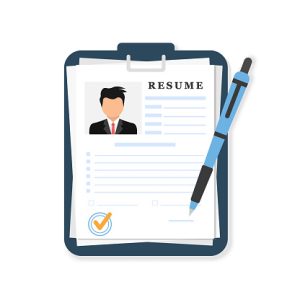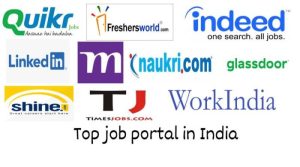Job interviews can be nerve-wracking experiences, filled with questions that test your skills, knowledge, and future aspirations. One such question that often leaves candidates puzzled is, “Where do you see yourself in 5 years?” Although it may seem like an easy question, it has a lot of significance and can greatly impact your chances of landing the job. It requires careful consideration and preparation to provide a thoughtful and compelling answer.
This article aims to guide you through crafting a powerful response to this question, highlighting the importance of strategic thinking, self-awareness, and alignment with the company’s goals. By understanding the interviewer’s underlying motives and demonstrating a clear vision for your professional growth, you can effectively showcase your ambition, commitment, and potential for long-term success.
Read to find out why to do interviewers as this question, various ways to ask the same question, how to answer properly, and important points to remember while answering, along with some sample answers.
Why do interviewers ask, “Where do you see yourself in 5 years?”
Before diving into crafting an effective response, it’s crucial to understand why interviewers ask this question. Three primary objectives often underlie their inquiry:
Assessing Ambition
Interviewers want to determine your level of ambition and ascertain whether you have a clear direction for your career. They seek candidates eager to advance, acquire new skills, and make meaningful contributions to the organization’s growth and success.
Evaluating Fit
Interviewers want to ensure that your long-term goals align with the company’s vision and values. It means they want to know if there is an overlap between what you want to do and what the company can provide. They are looking for candidates who are committed to the organization’s mission and can contribute to its growth and development over an extended period.
Assessing Commitment
Interviewers want to hire individuals who are dedicated and really interested in the role and won’t be inclined to jump ship quickly. They are looking for candidates who will invest their time, energy, and expertise to contribute to the organization’s success.
By understanding these underlying intentions, you can shape your response to address the employer’s concerns effectively.
Various ways to ask
“Where do you see yourself in 5 years?” isn’t the only way interviewers can ask. Here are some common variations:
- Where do you see your career in 5 years?
- What are your long-term plans?
- Do you have a five-year plan?
- What is your ambition?
- What skills would you like to have on your resume in 5 years?
- Describe your career goals.
- What job would you like to have in 5 years?
- Where do you see yourself 5 years from now?
Ways to answer “Where do you see yourself in 5 years?”
Showcase your ambition and excitement
Stress how willing you are to learn, develop, and take on new challenges. Employers appreciate candidates who demonstrate a hunger for advancement and show a willingness to expand their limits for the company’s growth and success.
Align with the company’s goal and vision
You need to tell interviewers why you choose this particular job role and your understanding of the company’s goals and mission. Demonstrate how your long-term objectives align with what the organization wants to achieve with this position, emphasizing your desire to contribute to its success.
Talk about what you will “do” instead of what you will “be”
Assure the interviewer by briefing what you want to do by mentioning your key goals and activities (which are related to your skills, for instance, managing or leading). You need to highlight your willingness to continue learning and professional development, which is ultimately beneficial for the company.
Also read:
Most Probable Questions Asked In Phone Interviews
How To Correctly Answer “Tell Me About Yourself” In Interview (With Examples)
How To Answer “Why Should We Hire You?” In A Job Interview
How To Answer “What Are Your Salary Expectations?” In An Interview
Important points to remember while answering
- Never say, “I don’t know,” “Sorry, not here!”, “I really want your job,” “I have no idea,” or “I just need a job to pay my rent.”
- Don’t mention designation or specific job titles.
- Show how your professional goal aligns with the company’s goal.
- Don’t show any impression that you are overqualified.
- Express your excitement and enthusiasm for the scope to learn in the new job role.
- Keep your answer brief and flexible.
- Note down the main points you want to tell and practice. Don’t try to memorise.
- Be clear about your career goals.
Sample answers
- “In five years, I envision myself in a leadership role where I can leverage my expertise and experience to drive impactful change within the organization. I am passionate about continuous learning and would actively seek opportunities to expand my skill set, such as attending workshops or pursuing relevant certifications.”
- “I strongly believe in loyalty and building long-term relationships. In five years, I see myself as an integral part of this organization, having made significant contributions to its success. I am excited about the potential for professional growth and the opportunity to work alongside a talented team that shares my passion for excellence.”




































